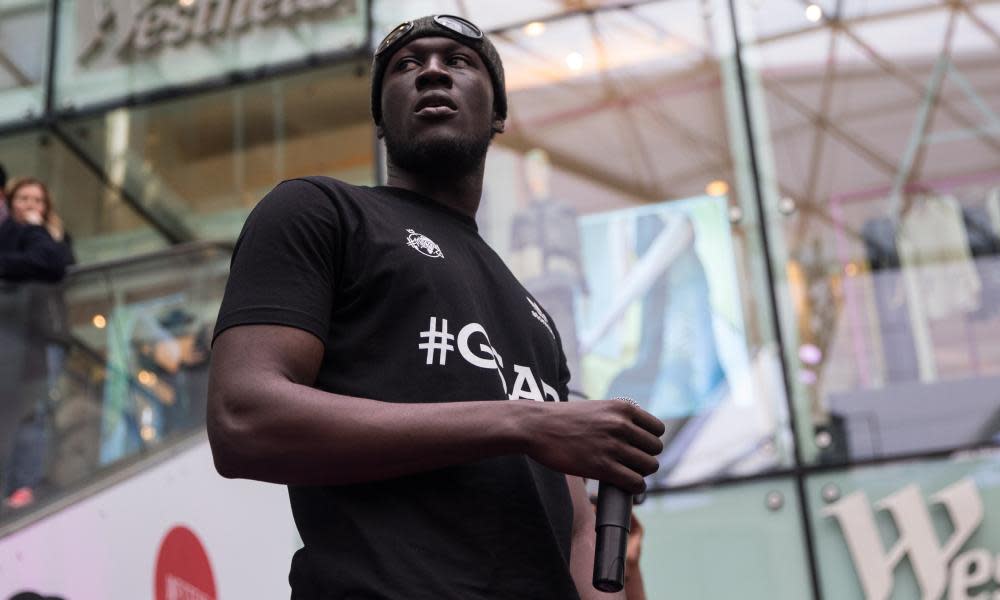Culture minister says Met's 696 form discriminates against grime artists

Grime artists are being unfairly targeted by the Metropolitan police through their use of a risk-assessment form, according to culture minister Matt Hancock.
The Met’s event risk-assessment form 696 is “potentially stifling young artists” and damaging the UK capital’s vibrant music scene, Hancock wrote in a letter to the London mayor, Sadiq Khan.
The form, which is often filled out by venues and promoters putting on events using MCs and DJs, asks for the names and phone numbers of artists and promoters and has prompted accusations of racism in the past.
Hancock likened the grime scene – popularised by artists including Dizzee Rascal, Skepta and Stormzy – to the birth of punk in the 1970s, adding: “I am concerned that the form is not only potentially stifling young artists and reducing the diversity of London’s world-renowned musical offering, but is also having a negative impact on the city’s night-time economy by pushing organisers and promoters of urban music events outside London.
He said grime had created “a new generation of musical heroes … growing to become a worldwide phenomenon.”
“I would like to understand whether you think form 696 is serving a justified purpose and working well, or whether there is a case for changing the current system,” he added.
Form 696 does not include “live music” events but covers those using a backing track. The Met denies the form is used for targeting certain genres of music, saying it is largely voluntary and designed to help promoters and the police work together to put in place additional measures “to mitigate any risks” if required.
But some affiliated with the grime scene have said that it has been used to single them out. In 2014, after one of his performances was cancelled at short notice, the artist JME told Vice’s music channel Noisey: “It’s an attack on people’s civil liberties, but also it’s blatant discrimination.”
There was controversy last year when police in Croydon were accused of trying to ban bashment, a Jamaican music genre.
A version of the form 696 is used by other forces in the UK, including Leicestershire and Bedfordshire – both of which ask for the genres of music played at events.
A Scotland Yard spokesman said: “The form does not target any particular group nor does it ask for the genre of music, event type, age range or demographic of the customers who attend.”
He said the force ran regular forums with promoters and venues across the city to exchange views and air grievances. “We have good working relationships with promoters and venues alike and are confident the majority understand the need for form 696,” he said.
City Hall said its priority was to keep Londoners safe and “support a vibrant night-time economy, and this means ensuring that all performances have the most appropriate security and safety plans in place”, adding: “We have supported a number of events that bring together the Met, music venues and promoters to try to improve the understanding of when and how risk-assessment form 696 should be used.”
The form was criticised in 2009, when two questions which asked for the ethnic makeup of attendees and the genre of music being performed were removed following accusations of racial profiling.
Jo Dipple, the chief executive of industry campaign group UK Music, welcomed Hancock’s intervention. “It is important to make sure form 696 is not being unfairly used against particular musical genres,” she said. “Discrimination against any musician damages all of us. It reduces the diversity of our output and limits our ability to reach our economic potential.
“British music is successful because it is diverse. It is right that government is stepping in on this issue and we will work with the minister, the mayor’s office and the Metropolitan police to properly examine and address any misuse of this form. It must be emphasised that this is not a criticism of the Met police who do amazing work in very difficult circumstances.”

 Yahoo News
Yahoo News 
